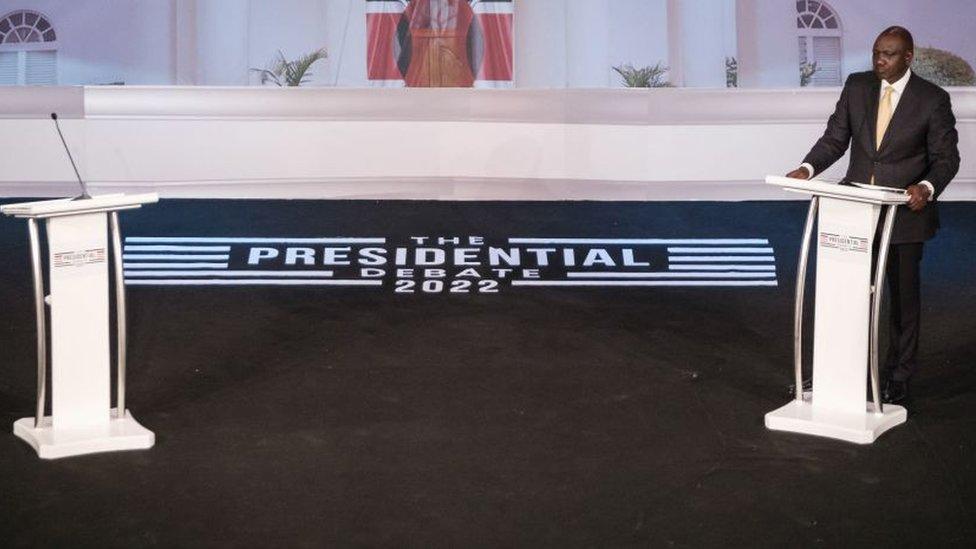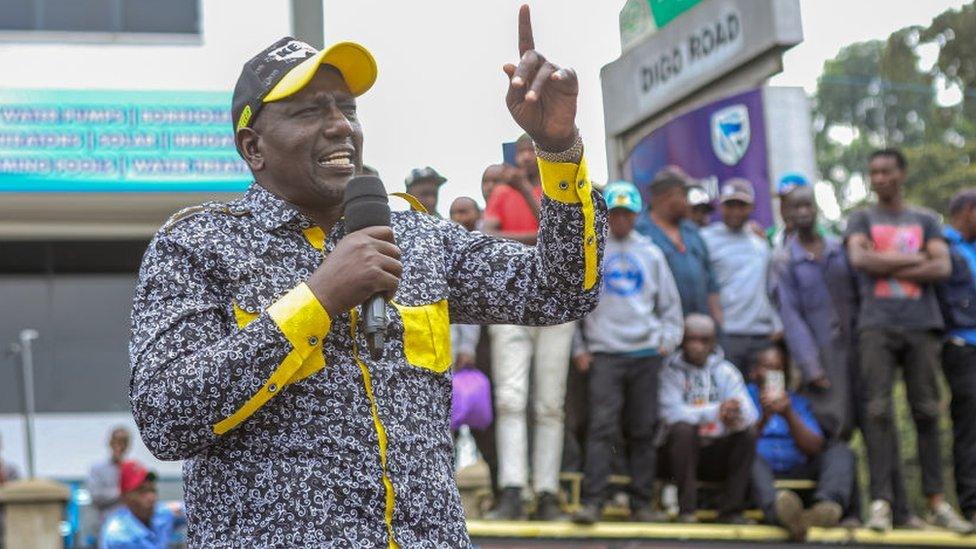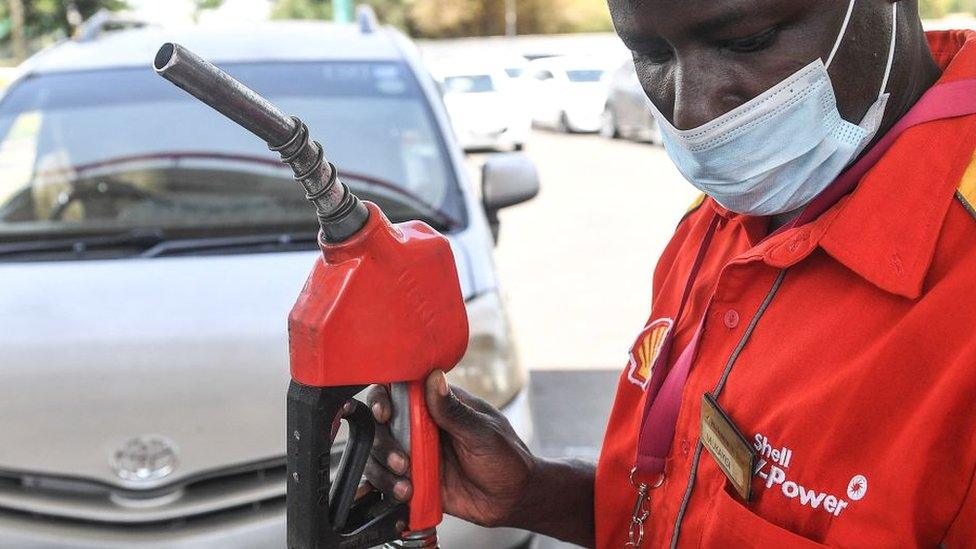Kenya election 2022: Deputy President Ruto fact-checked
- Published

Mr Ruto appeared alone in the TV debate on Wednesday
With elections a few weeks away, Kenya has held its first TV debate for presidential candidates in this campaign.
Deputy President William Ruto appeared alone - former Prime Minister Raila Odinga chose not to attend.
BBC News has checked some of the answers Mr Ruto gave the two interviewers.
'We have five million young people who are not working'
Mr Ruto's number is higher than official figures.
The national statistics bureau says, external 2.5 million 15-64-year-old Kenyans are out of work.

Deputy President William Ruto campaigning in Nairobi
According to the 2019 Kenya census, there were 1.6 million unemployed 18-34-year-olds - the official definition of "young people".
A 2015 report on the labour force in Kenya says just over five million of all ages were unemployed or "under-employed", which included those who said:
their hours were insufficient
their skills not properly used
they were less productive than they could be
'We have 15 million Kenyans who today are blacklisted in CRBs [credit-reference bureaux]'
Mr Ruto is referring to the bodies that approve Kenyans as credit worthy.
A February 2021 newspaper article, external says 14 million loan accounts are in arrears.
But Sam Omukoko from Metropol, one of Kenya's three credit-reference bureaux, told the local KTN television network the number of people would be considerably less.
"Kenyans have an average of about five accounts," he said, adding they borrowed from banks, micro-finance institutions and savings societies.
And the number of accounts in arrears is likely to have fallen in the past six months, after President Uhuru Kenyatta ordered a temporary halt to listing those who had defaulted on amounts less than five million Kenya shillings (£34,800), external.
'Almost 80% of all our borrowing is actually domestic'
Mr Ruto said the country had been borrowing more money locally, "which means we are also hurting our own enterprises locally".
"Access to credit becomes a big challenge [and] we must think of how we must slow down on borrowing locally," he said.
But the debt to international creditors and the amount owed domestic lenders, such as commercial banks, has remained roughly equal in recent years, with external debt generally slightly higher as a proportion of total debt.
In December, Central Bank of Kenya figures show, external:
total public debt was 8.2 trillion Kenya shillings
domestic debt was four trillion
external debt 4.2 trillion
An African Development Bank report last year noted: "The proportion of external debt - as a percent of total debt - rose from 44.5%, in 2013, to 52.5%, in 2020."
But for a period during President Kenyatta's first, 2013-17 term, with Mr Ruto as Deputy President, before external debt began to increase, domestic borrowing was higher.
'50% of fuel cost is taxes'

Mr Ruto said the country needed to review taxes on fuel, blaming them for contributing to a sharp rise in prices.
"The first thing that we need to do is to look at the taxes - because 50%, almost, of the cost of fuel in Kenya is taxes," he said, adding there were 15 different taxes on fuel.

YOUTH VIEW: The woman rallying election crowds - but won't vote
A WOMAN'S BATTLE: Taking on sexist bullies to stand
RAILA ODINGA: The eternal candidate hoping it will be fifth-time lucky
WILLIAM RUTO: William Ruto: The former chicken seller with presidential ambitions
READ MORE: Full coverage

But Energy and Petroleum Regulatory Authority data shows taxes and levies make up about 40% of the total cost of fuel.
In the latest official review of the price of a litre of petrol (159.12 Kenya shillings), 64.06 went to the government.
And taxes and levies total nine - not 15.
BBC News has asked Mr Ruto for clarification.
Additional reporting by Victor Komen, in Nairobi.
